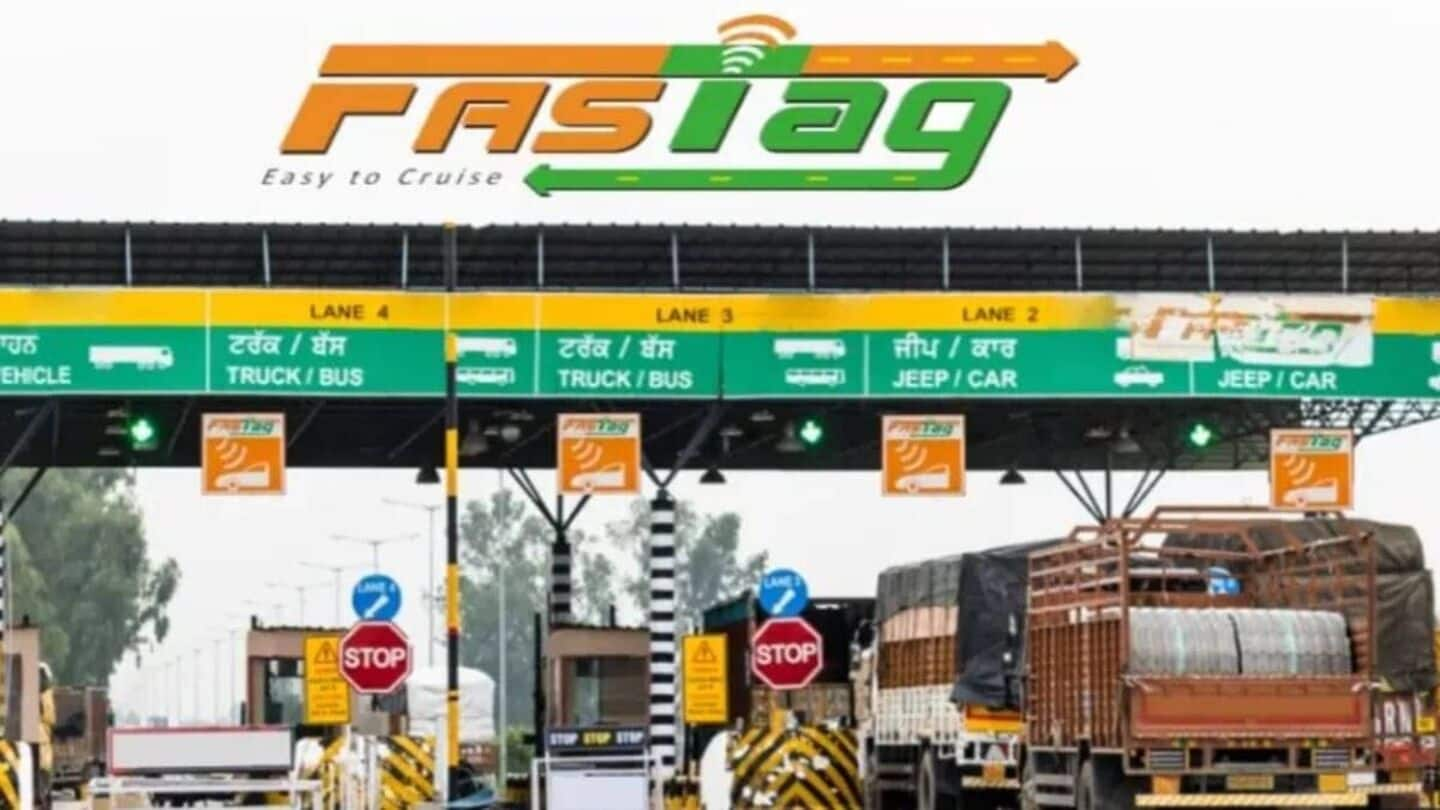
How FASTag annual pass will be game-changer for frequent travelers
What's the story
India's Ministry of Road Transport and Highways (MoRTH) is said to be considering a new toll policy, one that would introduce a FASTag annual pass at ₹3,000. This pass would allow unlimited travel on national highways for a whole year. It aims to simplify toll payments and reduce congestion at toll plazas by eliminating the need for frequent recharges and individual toll deductions. The proposed policy also features distance-based pricing and barrier-free toll booths for smooth traffic on national highways.
Annual pass
One-time payment for unlimited highway travel
As per the proposed policy, vehicle owners can pay a one-time annual fee of ₹3,000. This would allow them to travel unlimited distances on all national highways, expressways, and state expressways, throughout the year. Once this policy comes into effect, FASTag recharges will no longer be needed for traveling across the country. The idea is to simplify and improve the traveling experience across India's vast road network.
Pay-as-you-go model
Distance-based pricing for infrequent travelers
The proposed policy also brings a "pay-as-you-go model" at ₹50 per 100km. This system is aimed at those who don't travel often. It provides an alternative to the annual pass, making sure that all kinds of road users are covered under this new toll regime. This flexibility would make highway travel more economical and accessible for all in India.
Seamless transition
Transition for existing FASTag users
Existing FASTag users can switch to the new system without having to submit additional documents or changing their accounts. They can simply switch to the new policy using their existing accounts, making the whole process seamless and hassle-free. Notably, the previously proposed lifetime FASTag with one-time payment of ₹30,000 for 15 years has been scrapped under this new proposal.
Toll booth changes
Barrier-free toll booths for smoother travel
The proposed policy also calls for the removal of physical barriers at toll booths. The current sensor-based systems will be replaced with a barrier-free system. This will make traveling faster and smoother, reduce traffic congestion, and fuel consumption. The idea is to make highway travel more efficient and eco-friendly for all road users in India.
Revenue impact
Impact on toll revenue and compensation plan
The proposed policy could also affect the toll revenue of highway contractors. In this case, MoRTH is likely to formulate a compensation plan based on digital travel data. Further, banks will be empowered to take action against toll evaders. This way, the government will ensure fair collection of toll fees while minimizing losses for highway contractors.